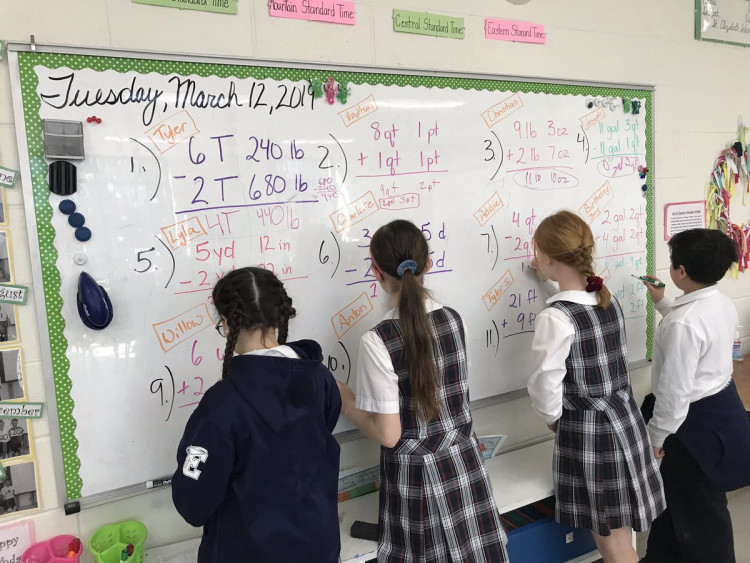Many students are having difficulty in understanding and solving Math problems, which experts refer to as dyscalculia. But no matter how much you tried, children suffering from this learning issue just can't seem to understand the concepts of Mathematics whether it may be about quantities, fraction, roman numerals, symbols, and even as simple as addition and subtraction. It wouldn't just affect the student's ability in doing Math, but it could also affect their day to day activities especially as they grow older.
Children who suffer from this learning issue needs a lot of support from parents and friends as they would often feel negative about it. Furthermore, special teaching strategies and tools are also needed in order for them to gain specific skills they need to overcome their situation, as reported by an online organization named Understood. Without these, it is almost impossible for them to learn and understand anything about Mathematics.
"As a homeschool mom, I was afraid that my worst fears were going to be realized: my daughter would never, ever understand math," shares Suzie Murphy, one of the guest blogger who wrote an article entitled "How My Daughter Finally Learned Math." She is one of the millions who have children suffering from dyscalculia.
Because of her daughter's situation, Murphy decided to research more about how she can help her daughter. She also applied several teaching tools to help her such as flashcards, timed tests, stories, and games. But nothing happened. All her daughter can say is, "Mom, I just don't understand it. It doesn't make any sense to me."
After several years of trying, as she was on the verge of giving up, it was then when she encountered a video on YouTube created by ST Math from MIND Research Institute. Through the video, the group enumerates several ways on how they can help her daughter and other children with the same situation. Filled with hope, she, together with his husband, decided to enroll their kids to the ST Math: Homeschool program.
Murphy noted several differences she noticed why the program was very effective in helping children suffering from dyscalculia. First, according to the mother of five, ST Math offers tools that are effective and fun at the same time. Second, the team behind the program encourages its students to work independently. Third, the team offers immediate feedback to students who are having wrong computation to their problems. With all these combined, their students, as well as Murphy's children, are now exclaiming "Oh, I get it now!" and "Oh, wow, I never understood that before!"
"I'm grateful to the researchers of ST Math--- they found a way to make math into some fun and exciting games that all kids can enjoy!" exclaims Murphy. Meanwhile, her children are doing pretty well with Mathematics now. Though challenged, they are now having fun while learning Math.






